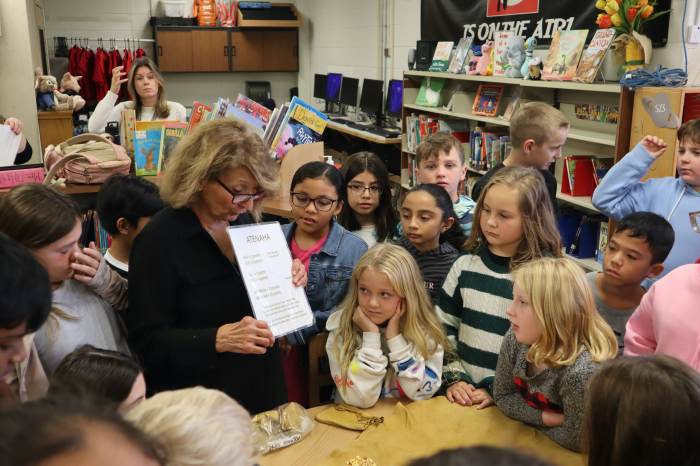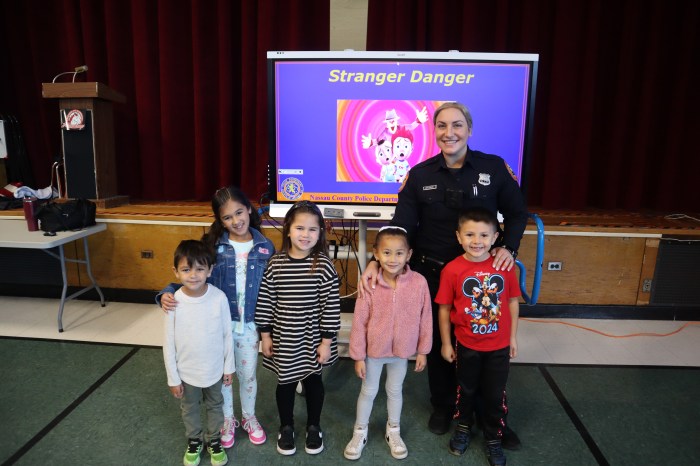For nearly two years, Rescue Ink has been crusading to put an end to animal cruelty and neglect.
Rescue Ink, a nonprofit organization on Long Island, was formed in 2007 by several longtime friends who were united by their love and admiration of animals.
“We met because we were all doing the same thing in our spare time: rescuing and finding homes for abandoned and abused animals,” the group explains in a statement on its official website. “None of us did it for money; we did it because we cannot stand by while anyone mistreats an animal!”
According to its mission statement, the primary objective of Rescue Ink is to “take the fight against animal abuse and neglect to the next level.” It intentionally operates in ways that other animal welfare organizations are either unwilling or unable to.
“We formed Rescue Ink because the problem of animal abuse and neglect has grown beyond the resources of the existing animal welfare agencies,” the group’s website explains. “We love the work done by some of the local shelters, but they cannot possibly keep pace with the volume of problems that need to be addressed.”
Rescue Ink stops at nothing within the bounds of the law to achieve its goals. Although it is willing to work in cooperation with other animal welfare organizations and law enforcement agencies, its members will usually take matters into their own hands.
“We will intercede without hesitation when we are informed of a situation that needs to be addressed, and we will address it,” their website reads. “If we need to convince people to do the right thing,” they warn, “we can be very convincing.”
For example, if the group receives word of a pet having been stolen, it will personally visit the location of the crime and scour the surrounding neighborhood, knocking on doors, interrogating possible suspects – i.e.: reputed thieves, drug dealers, or anyone who might be desperate or depraved enough to steal an animal and sell it for quick cash – until the identity of the thief has been uncovered; and then the group will personally confront the culprit and negotiate the release of the animal.
“Some people won’t talk to cops,” said one member, who is known as Johnny O. (The members identify themselves only by their first names or pseudonyms.) “They’ll talk to us.”
The organization receives reports of animal abuse and neglect filed through its website. A typical day on the “job” for the group is usually spent traveling in its van throughout the tri-state area visiting the sites of crimes and complaints.
“We go everywhere,” said George, another member. “New York. New Jersey. We even rescued these pigs on Long Island.”
Not only have they recovered lost or stolen pets, but, working with local authorities, they have also helped to expose such criminal activities as cock fighting and dog fighting rings.
“What some call a sport is an abomination, a cavalcade of horrors that cannot be tolerated,” the group declares in its mission statement.
The men of Rescue Ink have intimidating appearances that belie their compassionate natures. They generally are heavily muscled and sport visible tattoos, even on their necks and faces.
“You take a look at us, and maybe your first reaction is to cross to the other side of the street,” they quip on their website. “We’re not a gang, vigilantes or a social organization, but we do have that certain ‘in your face’ style when it comes to animal abusers.”
Rescue Ink often uses cutting-edge technology in the course of its work, such as advanced surveillance equipment.
“We do surveillance and are very careful,” the group explained, noting that a substantial number of the reports it receives are either false or exaggerated. “We check everything. We’ve got to be careful when it comes to complaints.”
Although Rescue Ink itself has only been in existence for a couple of years, the members themselves have known each other and worked together for considerably longer.
“We all go back 15 years from hot rod and tattoo conventions,” said one of the original members, referring to several co-members. “I’ve been doing rescues for 30 years.”
In addition to its response and rescue operations, Rescue Ink also helps to find homes for animals that either have been abandoned or abused or are on shelter death lists, and also offers assistance to other people and organizations that care for animals. It also works to inform and enlighten the general public about animals. Its goal, according to its mission statement, is to “work toward changing social mores by increasing public awareness and influencing their attitudes regarding animal welfare.” The group’s members regularly visit local elementary and middle schools, holding seminars designed to “instill an appreciation of the value of animals” in children and teach them how to watch for and properly report cases of animal abuse. The group’s website also features warnings and advice for pet owners concerning the proper treatment of their animals.
Recently, Rescue Ink has focused much of its efforts on educating the public about the mistreatment of dogs in puppy mills.
“Puppy mills are mass dog breeding businesses that treat animals in manners that we cannot tolerate,” reads the organization’s mission statement. “Rescue Ink believes that by educating the public to the unacceptable practices of puppy mills, we can help people make better decisions about where to acquire their pets, and hasten the closing of businesses who sell dogs from the mills.” Last year, the group took part in a public protest of local mills in Yates County, NY that received much media attention. The group aims to expose those retailers who sell dogs from mills and suggest alternatives, such as shelters and responsible breeders, from which people should purchase dogs instead. Ultimately, it hopes to “make the mills extinct.”
Among the many other programs that Rescue Ink runs is a Trap, Neuter, and Return (TNR) program for stray cats. “The problem of feral cats has grown to epidemic proportions,” the group notes in its mission statement. “It’s a fact that most cats without proper homes live in squalid conditions, subsisting on garbage, and frequently being the targets of abuse.” The TNR program seeks to stem the rapid and uncontrolled growth of stray cat populations by trapping the cats, neutering them, and then safely returning them to their habitat. “As it is impossible to find homes for all cats in the growing number of feral feline colonies, the most viable option is to help control the population in a manner that does no harm,” the mission statement reads.
Rescue Ink gratefully welcomes assistance from any members of the public, whether in the form of volunteer work or donations.
“We’re reaching out to foundations, corporations and individuals,” the group states. Recently, a donor gave the group a former ambulance, which the members are currently working on to convert into a mobile hospital for animals.
Rescue Ink believes that its hard work and perseverance have been increasingly paying off.
“With more people every day adopting our mantra of ‘Abusers Are Losers,’ we will bring shame and social stigma to those who would bring harm to animals,” reads the group’s mission statement.
For more information on Rescue Ink, including how to file a complaint about suspected animal abuse, how to volunteer to help, or how to provide a donation, visit the organization’s website at www.rescueink.org. Information about the group can also be found on its MySpace page, www.myspace.com/rescueink.





























